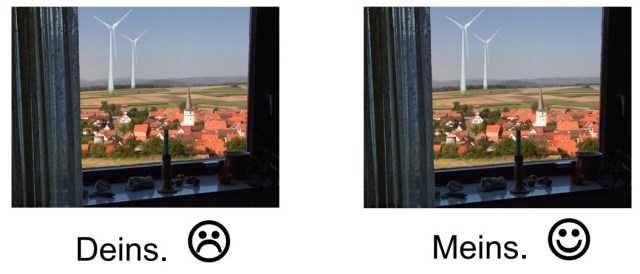On July 5, the German government signed an agreement with the country’s four transit grid operators for citizens to invest in grid expansion. But as Craig Morris explains, not everyone is happy.

Berlin is one of many cities in Germany in which citizens are trying to buy back the grid from private investors. (Photo by Jules Holleboom, CC BY-NC-SA 2.0)
It seems like a win-win situation. Grid operators can see the grid expansion process foreshortened from 10 years to four years (because public opposition is reduced), and German citizens can receive a return of “up to five percent.” And as the German Minister for Economics Philipp Rösler put it, “five percent is good if you take a look at capital markets.”
What is there to not to like? A lot, actually – as I pointed out last month, corporations have their own ideas about citizen investments. In Germany’s numerous energy cooperatives (founded and managed by local citizens themselves), German citizens have one vote per person regardless of the size of the investment – as in a democracy. Co-ops also generally pay a return of up to six percent, roughly the target return on investment for German feed-in tariffs – meaning that the co-op itself merely covers its expenses and passes on the profits to shareholders.
Not so with citizen investments in corporate-owned grids. Here, citizens are powerless second-tier investors behind other shareholders, whose rights will be protected first. What’s more, transit grid operators receive a guaranteed return of more than nine percent on their grid investments, so the firms are pocketing nearly half of the returns on investments made by others. Keep in mind that the target return on investment for feed-in tariffs is not guaranteed. Germany’s consumer advocacy group for energy consumers has therefore spoken out against the new agreement; while it likes the idea of citizen investments, it wants better terms.
A nine percent guaranteed return for grid operators might sound enticing to you if you are a consumer, but the firms sued to receive a guaranteed return of more than 11 percent, a case they lost in April.

Community ownership reduces NIMBYism – people think infrastructure is an eyesore if someone else owns it, but if they own, say, a wind turbine themselves, then it becomes “mine.” (Source: Agrokraft)
Other projects show how successful real community ownership of grids can be. Germany is currently undergoing a wave of “re-communalization” – citizens buying back their local grid operators to create municipal utilities. The citizens want to cut out corporate profits to make the Energiewende more affordable and remove corporate opposition to the switch to renewables.
But along with success stories from Berlin to numerous small towns, there is a pushback: at the beginning of July, the State of Schleswig-Holstein ruled that the City of Lübeck cannot buy back its municipal utility from Danish majority shareholder Dong, as the city’s citizens intended. Over the past few months, Germany’s Antitrust Authority has also openly criticized recommunalization, which it sees as a threat to competition. Essentially, the organization fears that local officials will not provide the best service at the lowest price to their citizens.
What are international onlookers to make of the German situation? First, that German citizens take corporations to be an obstacle, not an enabler, towards an affordable energy transition. And second, that the Energiewende includes input from citizens in a democratic debate with large energy firms on a market that remains committed to fair competition.
Craig Morris (@PPchef) is the lead author of German Energy Transition. He directs Petite Planète and is writes every workday for Renewables International.